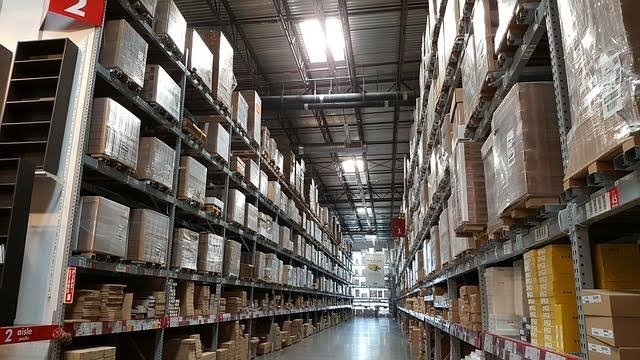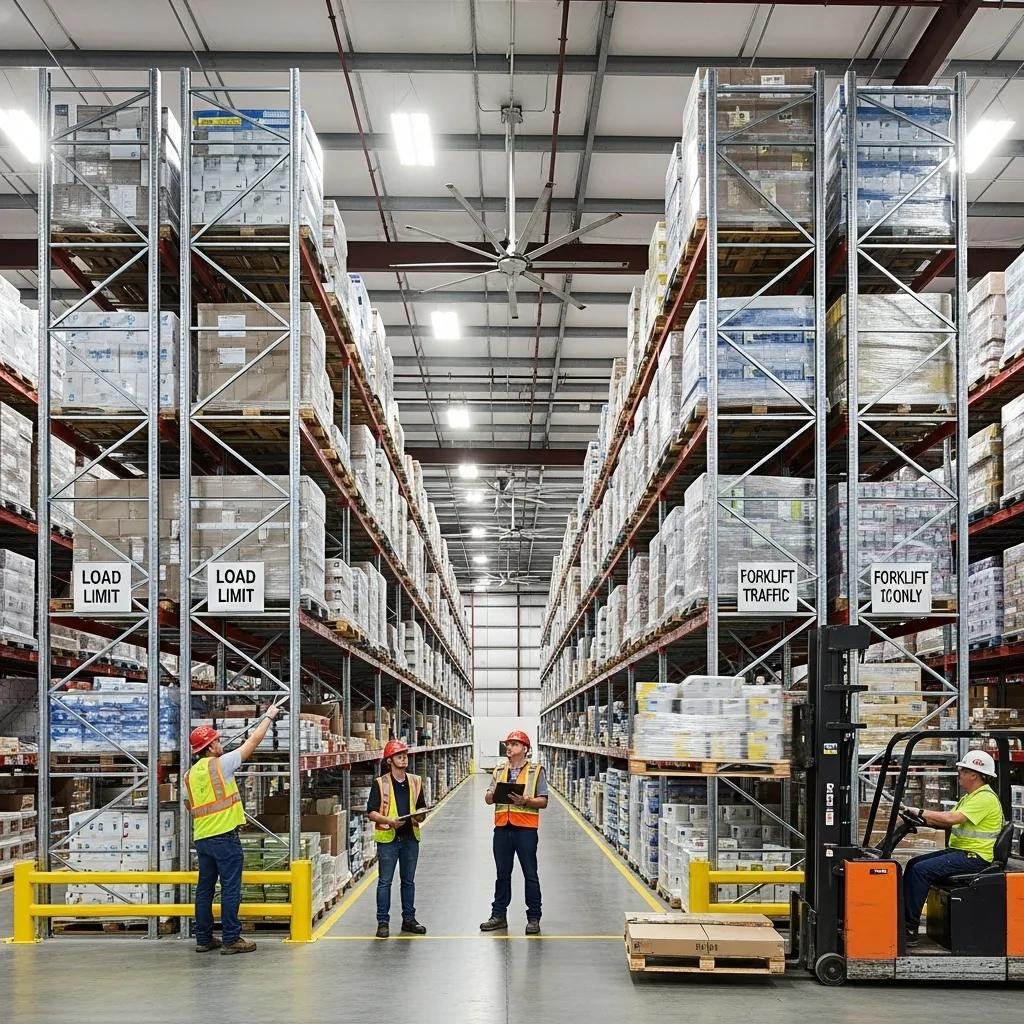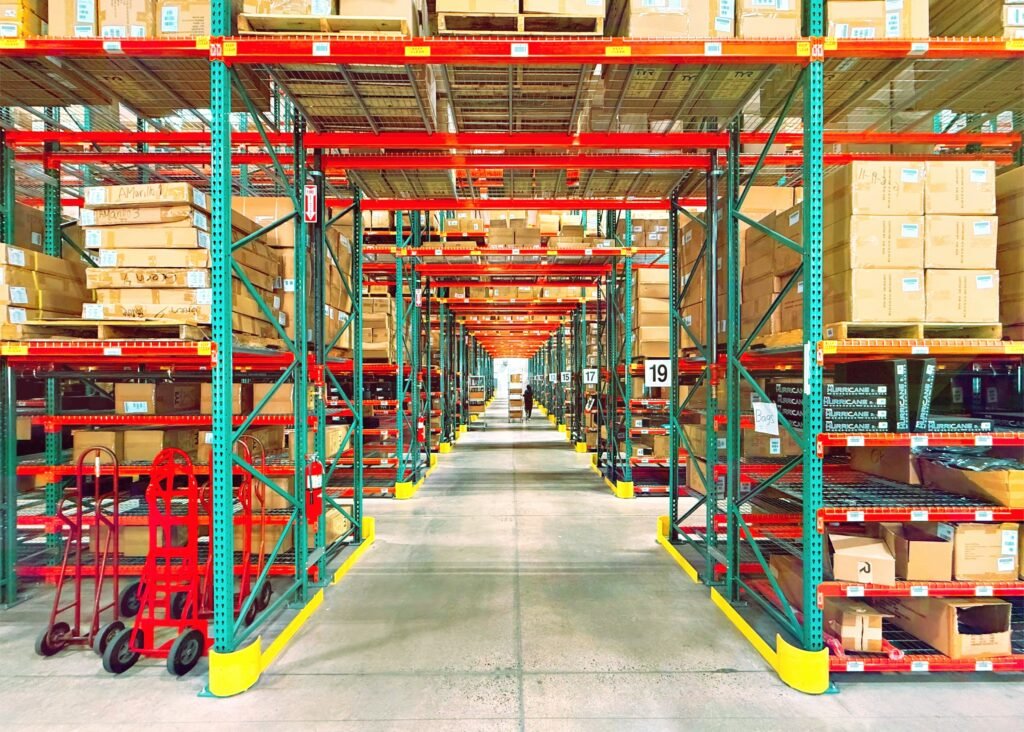Learn the risks of operating without a high pile storage permit, including fines, shutdowns, and fire hazards.
A high pile storage permit is required for businesses that store large quantities of combustible materials in warehouses or storage facilities. Typically, any storage exceeding 12 feet in height (or 6 feet for hazardous materials) requires this permit. Local fire codes mandate it to ensure proper fire suppression systems, aisle spacing, and emergency access are in place.
Without this permit, businesses risk severe consequences, including legal action and operational shutdowns.
Table of Contents
ToggleWhy is Compliance Important?
High pile storage regulations are designed to:
- Prevent fire hazards in storage areas.
- Ensure fire suppression systems (such as sprinklers) are effective.
- Maintain safe access for firefighters in case of an emergency.
- Protect employees, inventory, and property from fire-related risks.
Ignoring these regulations doesn’t just put a business at legal risk. It puts lives at risk.
Consequences of Operating Without a High Pile Storage Permit
Fines and Legal Penalties
Operating without high pile storage permits can lead to:
- Heavy fines that increase with prolonged non-compliance.
- Legal action from local fire marshals and regulatory bodies.
- Difficulty obtaining future permits due to past violations.
Depending on local regulations, fines can range from hundreds to thousands of dollars per day until compliance is met.
Business Disruptions and Shutdowns
If a fire marshal inspects your facility and finds you don’t have a high pile storage permit, they may issue a stop-work order or close your facility until compliance is met. This can result in:
- Lost revenue due to halted operations.
- Delays in fulfilling orders for customers.
- Reputational damage that affects business relationships.
Increased Fire Risks and Liability
Without proper fire prevention measures, your warehouse is at a higher risk for fires. If a fire occurs and you lack a permit, your business could be held liable for damages, injuries, or even fatalities.
Common fire risks in high pile storage facilities include:
- Inadequate fire suppression systems.
- Poor aisle spacing that hinders firefighter access.
- Highly combustible materials stored improperly.
Insurance Complications
Most commercial insurance policies require compliance with local fire codes. If your business doesn’t have a high pile storage permit, your insurer may:
- Deny claims related to fire damage.
- Increase your premiums due to higher risk exposure.
- Cancel your policy, leaving you financially vulnerable.
How to Avoid the Consequences of Non-Compliance
The best way to protect your business is by proactively securing a high pile storage permit and implementing fire safety measures. Here’s how.
- Understand Local Fire Codes – Research storage height limits, fire protection requirements, and spacing regulations set by your local fire department.
- Conduct a Fire Safety Assessment – Evaluate your warehouse layout, fire suppression systems, and emergency access points to ensure compliance.
- Develop a Compliance Plan – Work with fire safety professionals to create a plan that includes sprinkler systems, fire alarms, and proper aisle spacing.
- Train Employees on Fire Safety – Educate your staff on storage regulations, emergency procedures, and how to prevent fire hazards.
- Regularly Inspect Storage Areas – Conduct routine checks to ensure compliance with permit requirements and address any potential violations.
- Work with Compliance Experts – Partner with professionals like Quantum Warehouse Solutions to streamline the permit application process and maintain ongoing compliance.
How to Obtain a High Pile Storage Permit
To secure a high pile storage permit, businesses must:
- Assess Storage Needs – Determine if your storage configuration requires a permit based on height and materials.
- Consult Local Fire Codes – Review regulations from your local fire department or authority.
- Develop a Fire Protection Plan – Ensure proper fire suppression systems, aisle spacing, and emergency exits are in place.
- Submit an Application – Provide required documents, including warehouse layouts, sprinkler details, and hazard assessments.
- Pass an Inspection – A fire marshal will inspect your facility to confirm compliance before granting the permit.
Conclusion
Operating without a high pile storage permit isn’t just a regulatory issue. It’s a serious risk to your business, employees, and property. Non-compliance can lead to costly fines, business shutdowns, increased fire hazards, and even insurance complications. By securing the necessary permits, you ensure that your warehouse meets safety standards, remains legally compliant, and minimizes operational risks.
Don’t wait until an inspection or fire forces you to take action. Quantum Warehouse Solutions is here to help you navigate the permitting process and keep your facility compliant. Visit Quantum Warehouse Solutions today to safeguard your business and maintain seamless operations!







